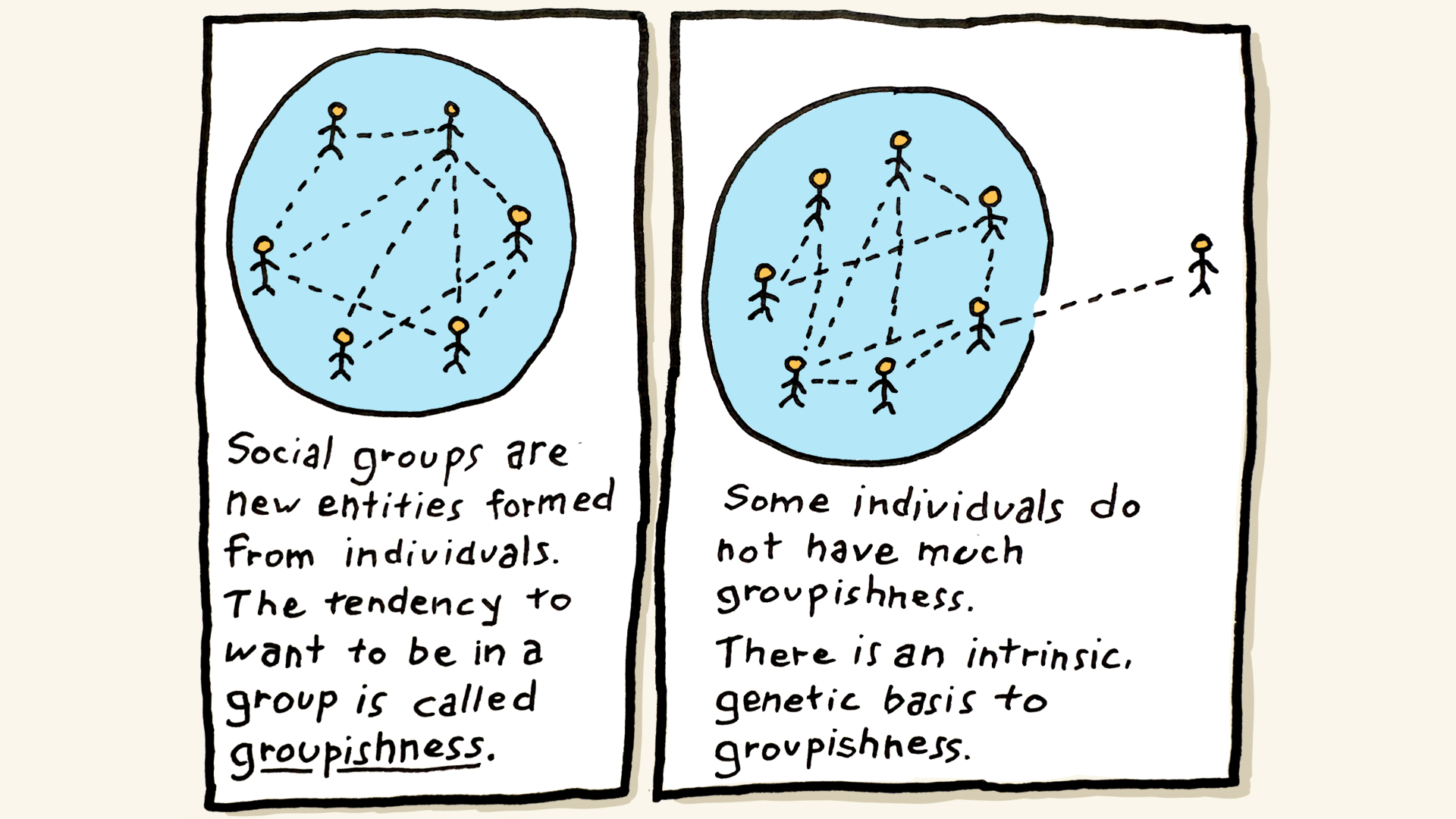Thoughts on behavior and genetics

On Friday 20 June I did a talk on what we can learn from evolutionary biology about Masculinity and Femininity. So evolutionary biology and its effects on our behavior has been on my mind a lot recently.
It’s easy to accept that our evolutionary history has shaped our bodies. Our evolutionary history has selected our particular DNA, DNA makes proteins, proteins are the building blocks of our bodies. It’s less intuitive that our emotions, internal sensations and feelings and thus our behavior is also a result of our evolutionary history. And just as our eye and hair colour, height, body shape, facial features etc are a result of our DNA, so are many aspects of our behavior.
One of the behavioral aspects I find most fascinating is “groupishness”, the instinct to affiliate with a group. I’ve always felt that I have low groupishness compared to most other people. I’ve never felt comfortable in social groups and tend to have friendships with individuals rather than friend groups. To what extent is groupishness genetic?
There are quite a few genes that are strongly correlated with groupishness. Oxytocin, known in the popular press as “the love hormone”, is one of the main ones. So too is Vasopressin, which has a stronger bonding effect in men (Oxytocin is stronger in women). There is also a link between Serotonin and Dopamine and groupishness. There are more specific genes too, genes which when missing are correlated with autism, schizophrenia, depression and loneliness.
Would it be a good thing if everyone knew what their behavioral profile from their genome is? I think it would probably help a lot of people understand themselves, and to stop blaming themselves for their “faults”.